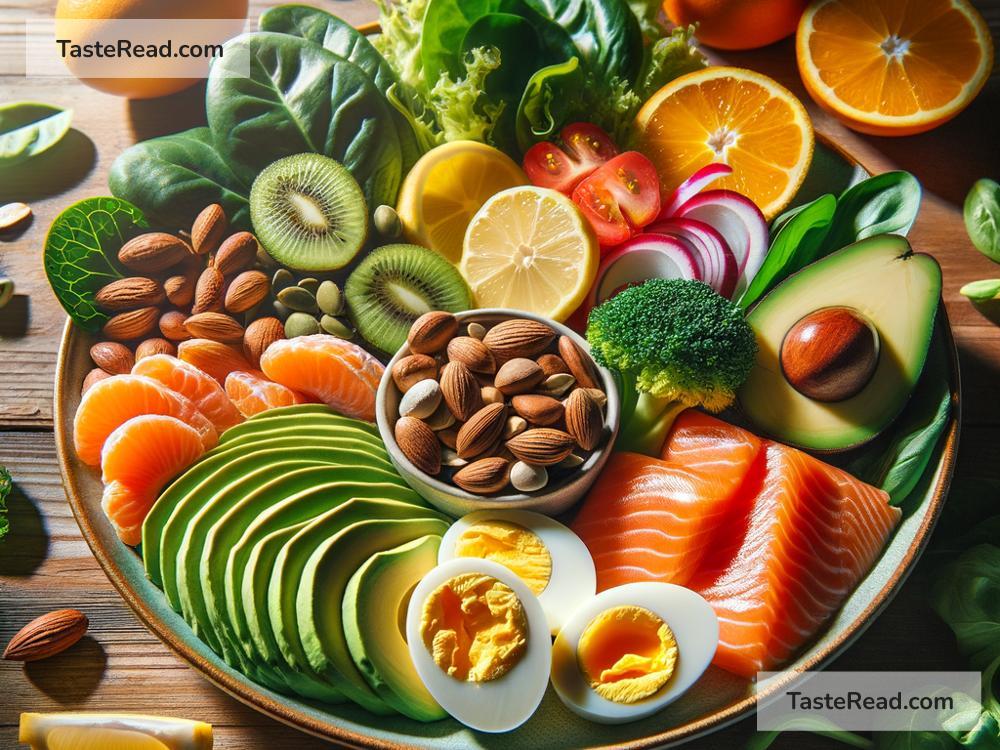The Benefits of a Balanced Diet for Reproductive Health: Supporting Fertility Function
Maintaining good reproductive health is important for everyone, whether you’re planning to have children now or in the future. A key factor that supports reproductive health is the food we eat. A balanced diet, which includes a variety of nutritious foods, provides the body with essential nutrients that can greatly improve fertility and overall reproductive function. Let’s explore how a balanced diet helps and why nutrition plays such a big role in reproductive health.
What Is a Balanced Diet?
A balanced diet includes all the food groups—fruits, vegetables, whole grains, lean proteins, healthy fats, and dairy products—in the right amounts. Eating a wide variety of foods helps your body get the vitamins, minerals, and other nutrients it needs to function properly. It’s not about eating perfect meals every day but focusing on getting enough nutrients consistently.
How Diet Affects Reproductive Health
Reproductive health includes everything related to fertility and the ability to conceive. For women, this means having regular menstrual cycles, producing healthy eggs, and maintaining a healthy environment for pregnancy. For men, reproductive health includes producing healthy sperm and supporting hormone levels that play a role in conception.
The food we consume affects these processes in several ways. Nutrients from food help our bodies produce hormones, fight inflammation, create energy, and maintain a healthy weight—all of which are crucial for reproduction.
Benefits of a Balanced Diet for Women’s Reproductive Health
Women’s fertility depends on the health of their eggs, hormone levels, and the uterus. A balanced diet can support all these factors. Here are some key benefits:
-
Hormone Balance:
Hormones like estrogen, progesterone, and luteinizing hormone play a big role in ovulation and the menstrual cycle. Certain nutrients, such as healthy fats found in avocados, nuts, and fish, help balance hormones naturally. -
Improved Egg Health:
Healthy eggs are necessary for conception, and their quality depends on your nutrition. Antioxidants found in fruits, vegetables, and whole grains help protect eggs from damage caused by oxidative stress. Vitamins C and E, found in oranges and almonds, are especially helpful. -
Regular Menstrual Cycles:
Irregular cycles can affect ovulation and make it harder to plan or conceive. Iron, which is found in leafy greens and lean meats, supports regular cycles by helping your body produce healthy red blood cells. -
Support for Pregnancy:
If you’re trying to conceive, your body needs to prepare to support a fertilized egg. Foods rich in folic acid, like spinach and legumes, create a healthy environment for pregnancy and reduce the risk of birth defects.
Benefits of a Balanced Diet for Men’s Reproductive Health
Men’s fertility depends on the quality and quantity of their sperm. Nutrition plays a major role in sperm production and overall reproductive function.
-
Enhanced Sperm Quality:
Antioxidants such as selenium and zinc play a role in protecting sperm from damage. Selenium can be found in foods like Brazil nuts, and zinc is abundant in seafood and seeds. These nutrients help sperm stay healthy and mobile. -
Hormone Health:
Testosterone, the key hormone involved in male reproduction, relies on certain nutrients to stay at optimal levels. Healthy fats, such as those in olive oil and fish, support hormone production and balance. -
Improved Energy Levels:
Fertility requires a healthy body overall. Whole grains and proteins provide sustained energy and support metabolic functions that are important for male reproductive health.
Foods to Include for Better Reproductive Health
Now that we understand the benefits of good nutrition, here are some foods that can help support fertility for both women and men:
-
Vegetables:
Spinach, kale, broccoli, and other green vegetables are high in folic acid, iron, and antioxidants, which benefit hormonal health and egg development. -
Fruits:
Fruits like berries, oranges, and pomegranates are full of vitamins and antioxidants that protect reproductive cells. -
Whole Grains:
Brown rice, quinoa, and oats provide energy and keep blood sugar levels stable, which is important for hormone regulation. -
Lean Proteins:
Chicken, turkey, eggs, and legumes like lentils and chickpeas offer essential amino acids for cell growth and repair. -
Healthy Fats:
Olive oil, avocados, nuts, seeds, and fatty fish like salmon are excellent sources of Omega-3 fatty acids, which support hormone production. -
Dairy Products:
Low-fat dairy sources, such as Greek yogurt or skim milk, supply calcium and vitamin D, which are important for reproductive health.
Foods to Limit
While a balanced diet includes all food groups, it’s best to limit processed foods, sugary treats, and trans fats. These foods can increase inflammation, cause hormone imbalances, and negatively impact fertility health.
Lifestyle Matters
In addition to diet, other lifestyle factors contribute to reproductive health. Staying active, managing stress, and avoiding smoking or excessive alcohol consumption are equally important. Exercise and stress management help regulate hormones and improve circulation, which is key for fertility.
Conclusion
The journey toward improved reproductive health begins with what you put on your plate. A healthy, balanced diet provides the nutrients your body needs to support fertility function, whether you’re a man or a woman. By eating a variety of fruits, vegetables, whole grains, healthy fats, and lean proteins while limiting processed foods, you can enhance your reproductive health naturally.
Taking care of your nutrition today can make a big difference for your future family plans—and your overall well-being. So, why not start building those healthy habits today? Your body—and your reproductive health—will thank you!


